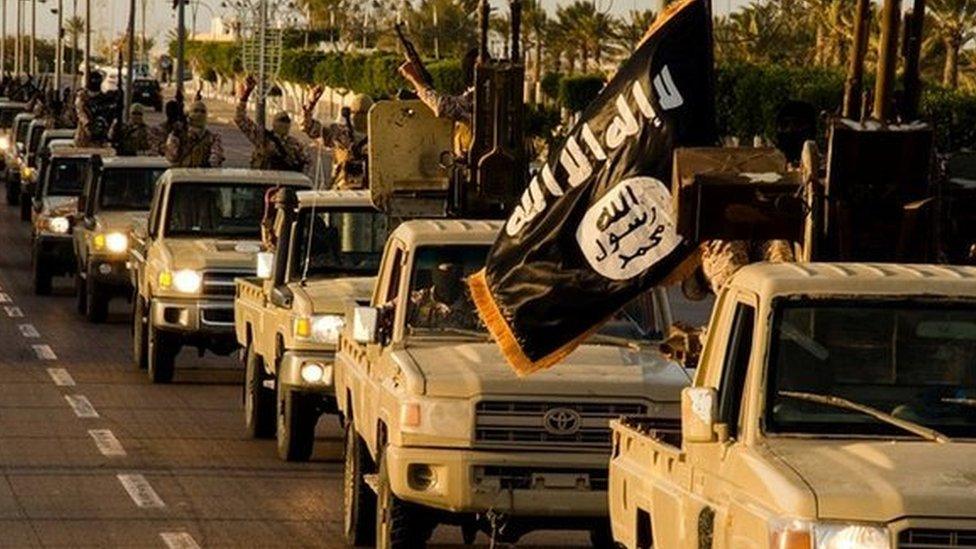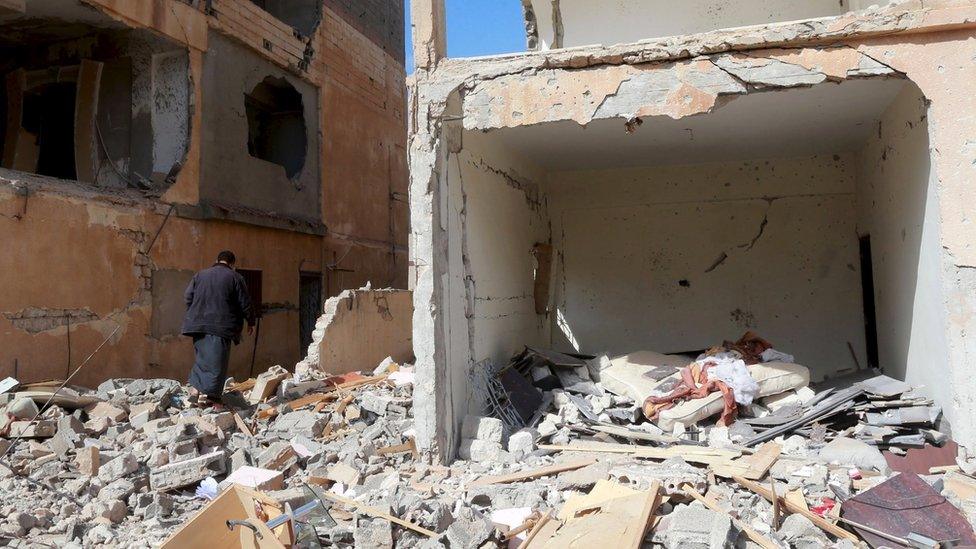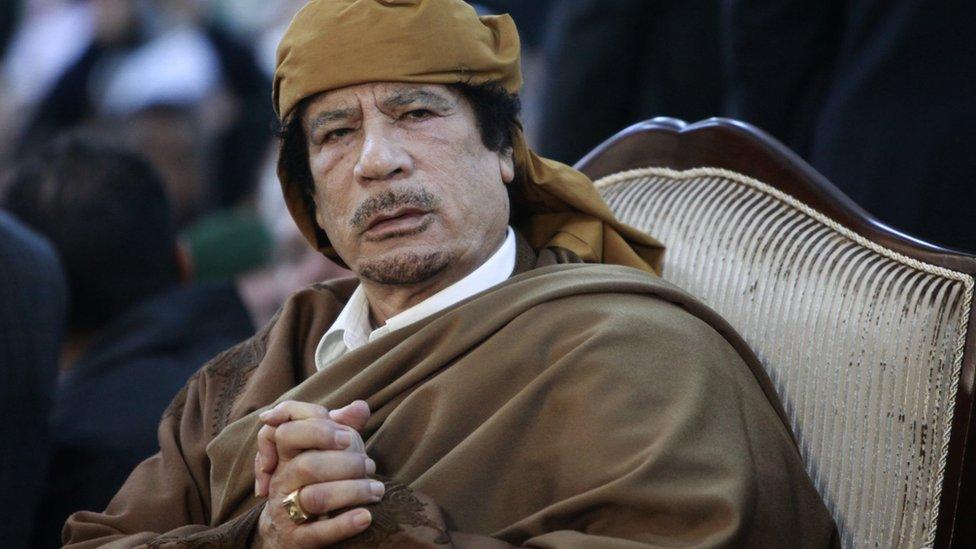Obama warns of IS focus on Libya after Iraq and Syria setbacks
- Published

Islamic State militants have captured parts of northern Libya
Islamic State (IS) recruits are increasingly heading to Libya following the setbacks the militant group has suffered in Iraq and Syria, US President Barack Obama has said.
The US will continue efforts to beat it back in Libya, he added.
Last week, Mr Obama said the "worst mistake" of his presidency was his failure to plan for the aftermath of the ousting of Libyan leader Col Muammar Gaddafi in 2011.
Libya has been in chaos since then.
A new UN-backed government arrived in Libya's capital, Tripoli, earlier this month in the hope of restoring order in a country controlled by rival militias, governments and parliaments.
IS has exploited the chaos to gain a foothold in the North African state.
Last year, the group appealed to its sympathisers in Africa to go to Libya, which it sees as a gateway for attacks on Europe.
Refugees and migrants are also increasingly using Libya to cross the Mediterranean to reach Europe.
Migrants tell Quentin Sommerville why they are desperate to get to Europe
Speaking after a meeting with security officials at CIA headquarters, Mr Obama said the number of IS fighters was at its lowest in two years because of the offensive against it by a 66-member coalition.
"As we, and our foreign allies and partners, have made it harder for foreign terrorists to reach Syria and Iraq, we have seen an uptick in the number of Isil [IS] fighters heading to Libya," Mr Obama said, using an alternative acronym for the militant group.
"We are going to continue to use the full range of our tools to roll Isil back from Libya while insisting the new, nascent Libyan government works to secure their country," he added.

Rival militias have been fighting for control in Libya
US intelligence estimates suggest the number of IS fighters in Libya probably doubled in the past 12 to 18 months to between 4,000 and 6,000, the top US commander for Africa, Gen David Rodriguez, said last week.
In an interview last week with Fox News, Mr Obama said the 2011 intervention by Nato forces in Libya had been "the right thing to do".
At the time, the North African state was gripped by a popular uprising against Gaddafi's nearly 41-year rule.
The late leader vowed to crush the uprising, leading to the US and other Western states to launch military action which said they was aimed at protecting civilians.
However, the African Union warned against military intervention, saying the entire region could become unstable.

Libya timeline

Gaddafi was killed during the 2011 popular uprising
February 2011: Protests against Colonel Gaddafi's regime erupt in Libya
March 2011: UN Security Council authorises a no-fly zone over Libya and air strikes to protect civilians
October 2011: Gaddafi is captured and killed by rebel fighters
2012: Splits emerge as the transitional government struggle to rein in local militias
September 2012: The US ambassador and three other Americans are killed when Islamist militants storm the consulate in eastern Benghazi
June 2014: Disputed elections are held. Two governments are formed: one in the capital Tripoli, the other UN-backed administration in eastern Torbruk
January 2015: The UN announces a new interim government but it is yet to take charge
